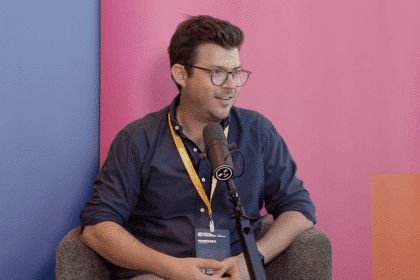Crisis communications experts Simone Lewis and David Yelland have picked apart Prince Harry’s explosive interview with the BBC that blames Buckingham Palace and the Home Office for failing to win a court battle that would reinstate a taxpayer funded royal security detail.
As well as speaking about his disappointment at the court outcome, the Duke of Sussex felt he had been “singled out” about his reduced security, with the changes in rules made in the same year Harry and Meghan quit royal life and moved to America.
Prince Harry also said his father King Charles could have resolved the situation and that he wants to reconcile with his family despite claiming that he doesn’t know how long his father has to live.
The timing of the interview coincided with the 80th anniversary of Victory of Europe Day, where scenes of Harry’s family on the Buckingham Palace balcony were beamed across the world.
On their BBC podcast When It Hits The Fan, former editor of The Sun and crisis communications expert David Yelland discussed the interview with Sion Lewis, a special situations advisor at Astraea, who has previously served in communications roles at Buckingham Palace and for former UK Prime Minister Gordon Brown.
Lewis said that Prince Harry said conducting an interview about an emotional topic such as a family rift was not ideal.
“I don’t think the Prince Harry crisis is really about the British state, soft power, hard power or even about the monarchy. It’s about family, and it’s about judgment, and it’s about trauma,” he said.
“And what happens is that trauma clouds out judgment, which is sadly what we see in the Prince Harry interview. I have a lot of sympathy with him and for him, I also think he’s making a whole series of mistakes.”
Yelland pointed out that Prince Harry’s PR moment made three fundamental errors.
“He went in hot. You never go into an interview hot or with your blood up. You have to be cool and he wasn’t cool,” Yelland said.
“[Secondly] you can see it in his body language and what he said that he wasn’t prepared because he thought he was going to win. And then the third mistake, which he made probably because he was angry…is that he volunteered what has become an uncontrollable global news story when he said, ‘I don’t know how much longer my father has’.”
Lewis said that the central tenet of PR is often timing—”when you choose to do things”—and how you choose to do them.
“It’s also about how to give advice and how to take advice,” he added. “Perhaps he should have delivered some of his messages so much more elegantly, (such as) that reference about how much longer he’s got.
“Couldn’t he have said something like, ‘I’m so proud of how my father has been dealing with this cancer treatment. I’m so sorry not to have seen more of him during his time’. I really think that would have resonated with everyone.”
The pair lauded Prince Harry as a “brave young person” who had served twice in Afghanistan, but felt that the interview left him being perceived by the public as someone with a “sense of entitlement”.
“When I look at the scene on the balcony on VE Day, I think about the loss of not having Harry and Meghan and their children on that balcony. If you think about where the brand of the British royal family would be with them in it, whatever you say about all of this, it is a reputational disaster for the royal family.”








